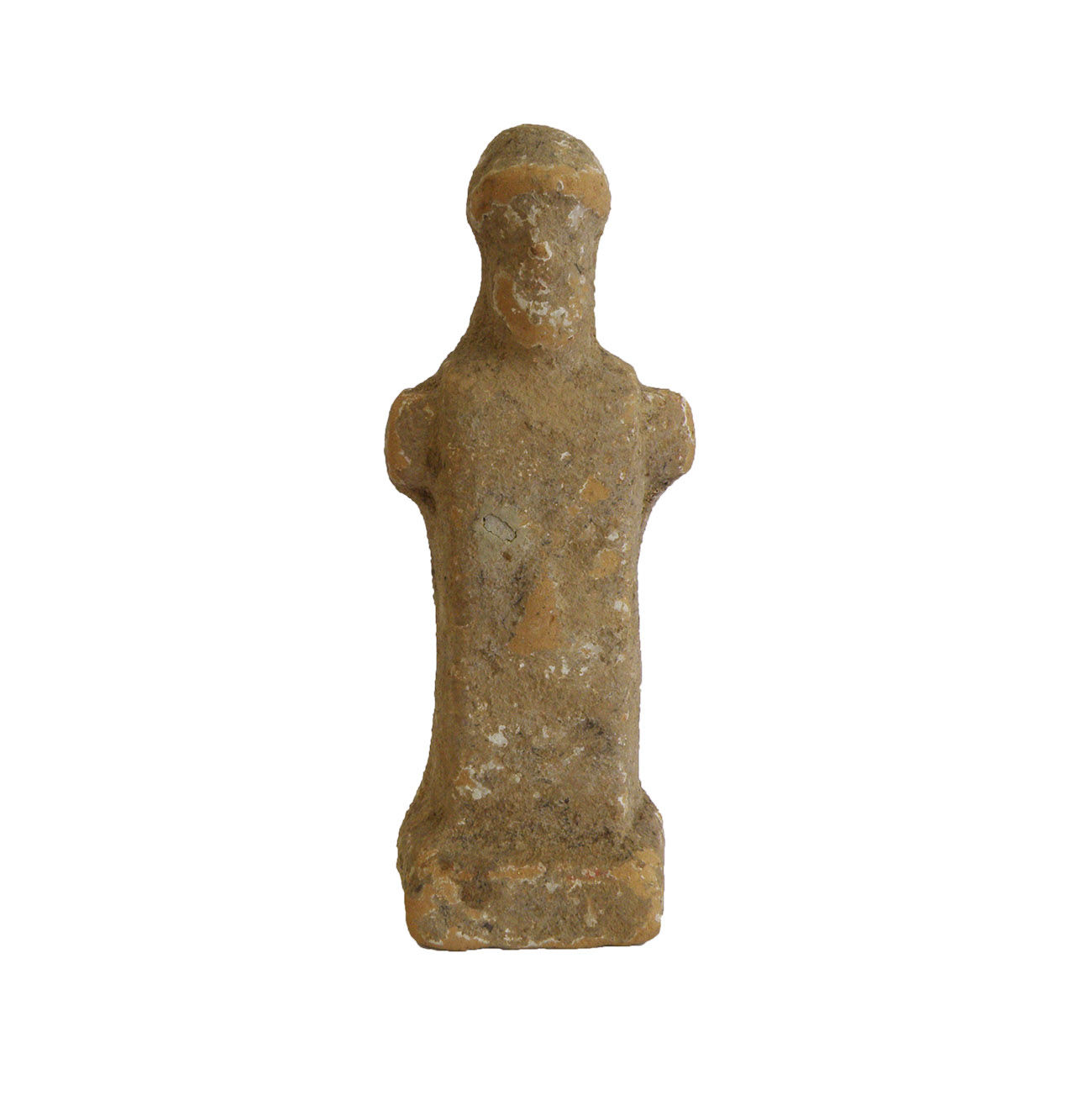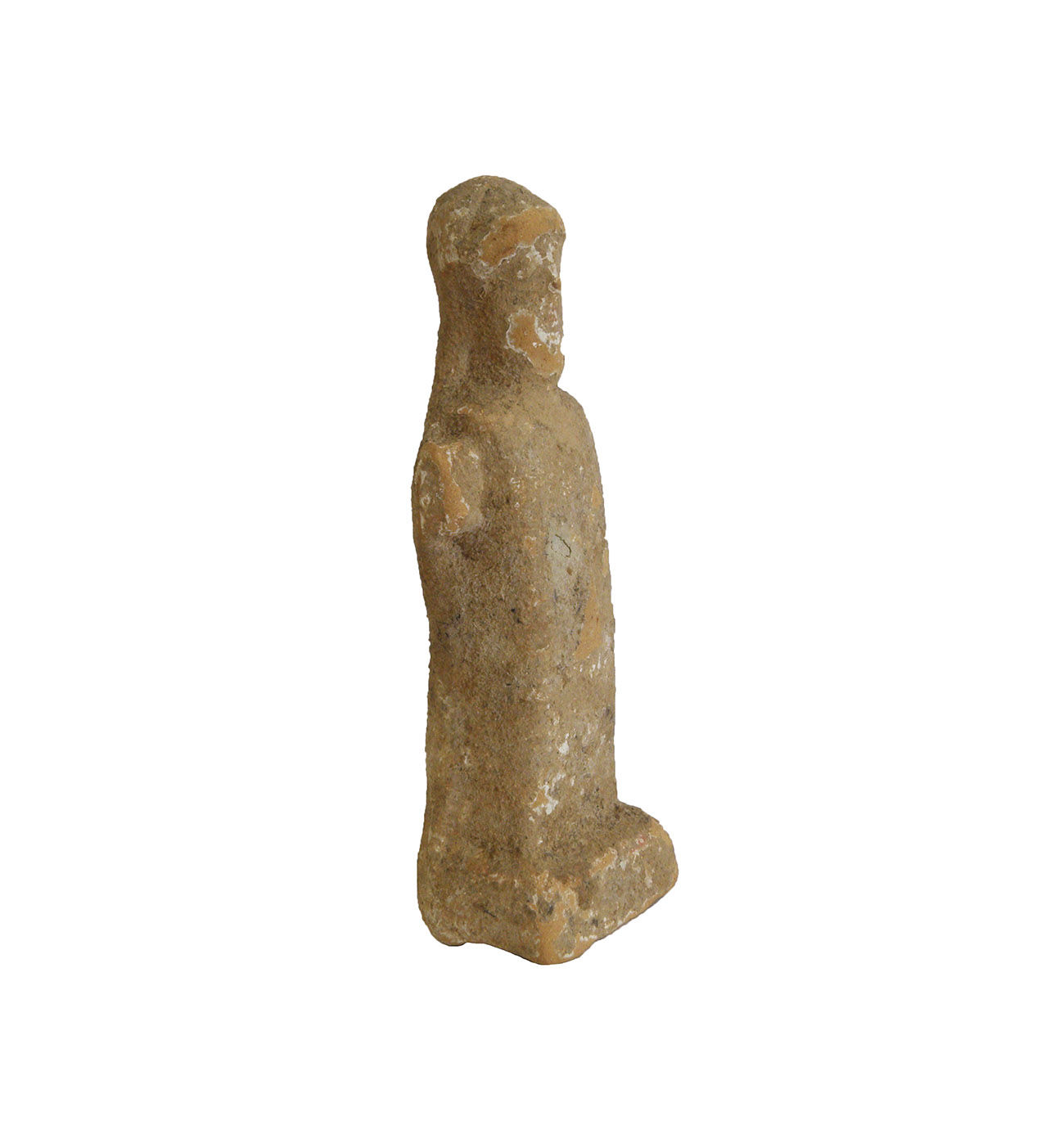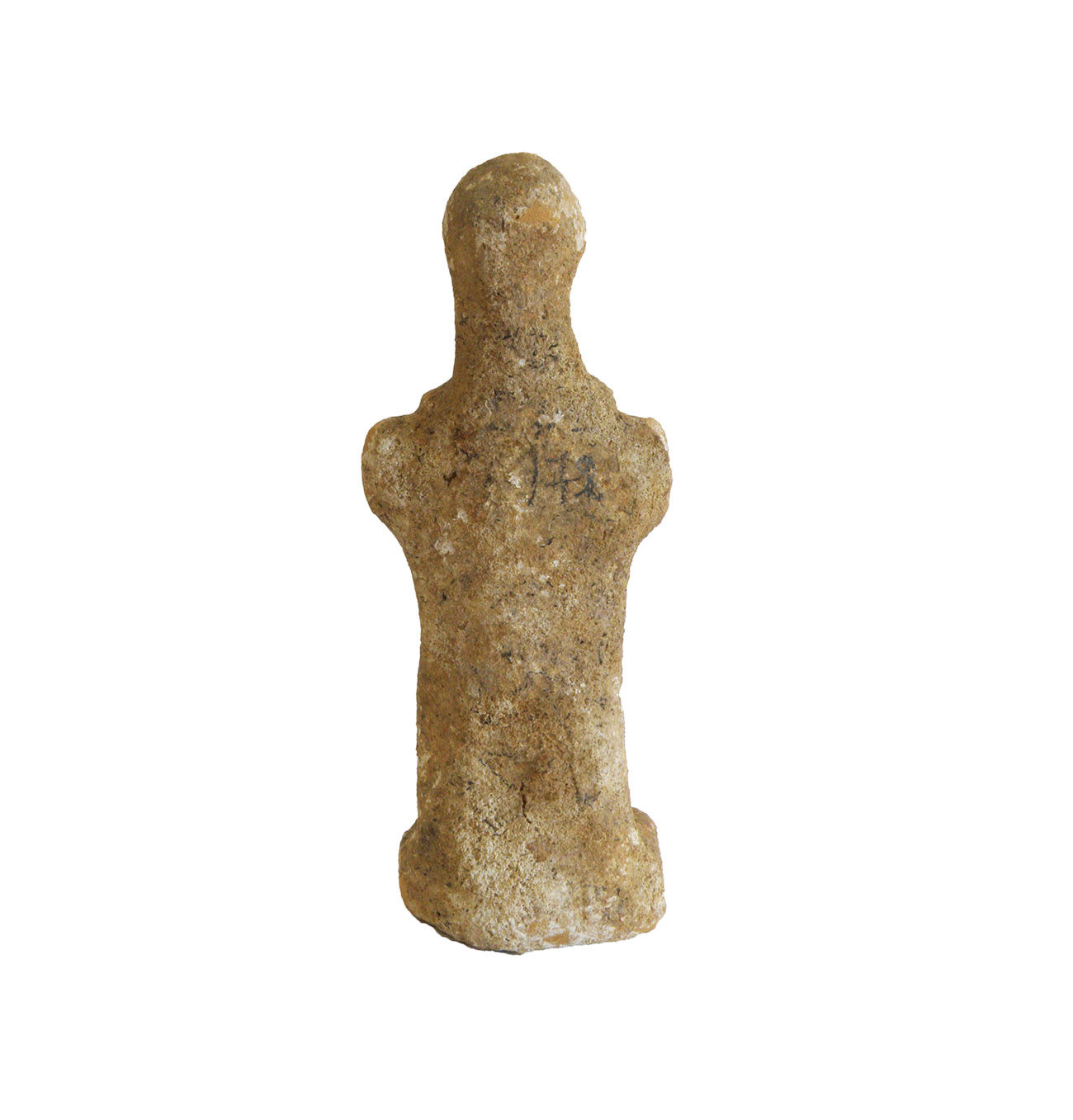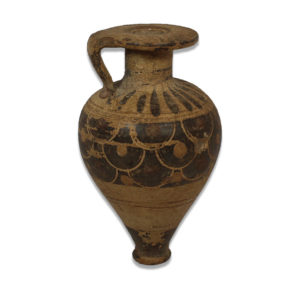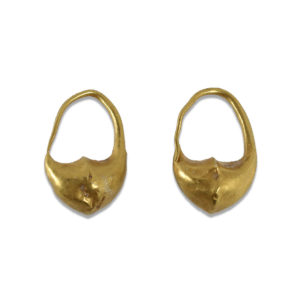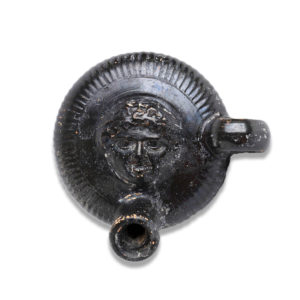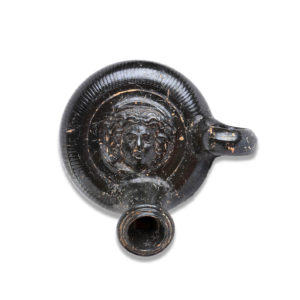Description
| ITEM | Herm of Priapus (Ithyphallic) |
| MATERIAL | Terracotta |
| CULTURE | Greek, Archaic period |
| PERIOD | 8th – 6th Century B.C |
| DIMENSIONS | 105 x 35 mm |
| CONDITION | Good condition |
| PROVENANCE | Ex French private collection, acquired between 1970 – 1990 |
| BIBLIOGRAPHY | ELLEN, JENNIFER. The Collection and Reception of Sexual Antiquities in the Late XIX and early XX Century (2013). p.340. Figure 46. |
Greek herms of Priapus were distinctive sculptures depicting the minor god Priapus, known for his associations with fertility, gardens, and an exaggerated phallus. These herms typically featured a stout figure with a potbelly, holding an oversized, erect phallus. Priapus was revered as a guardian of gardens and crops, believed to ensure abundant harvests and ward off evil spirits.
These sculptures held a dual role in ancient Greece, serving as both religious symbols and sources of humor. Placed in gardens and vineyards, they invoked Priapus’s protective qualities while also providing amusement through their humorous and exaggerated depictions. Greek herms of Priapus reflect the integration of mythology into daily life, showcasing the Greeks’ appreciation for art that combined the sacred and the whimsical.


